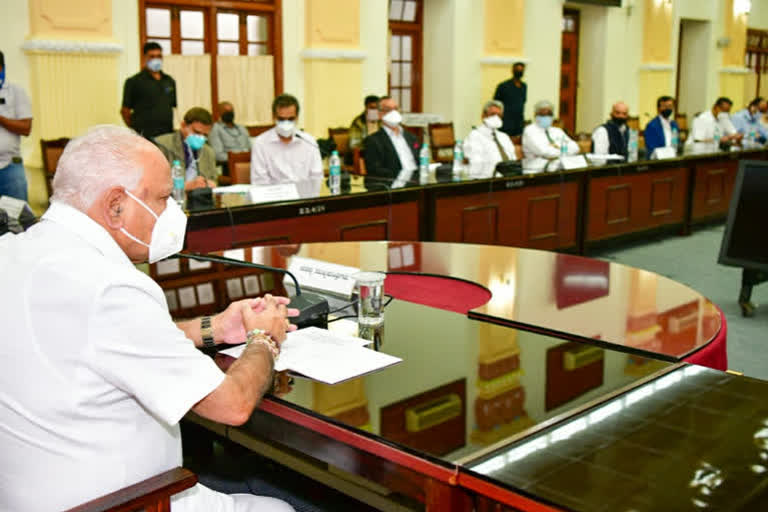Bengaluru: The Karnataka government has decided to issue caste and income certificates to Brahmins though they are in a minority, accounting a mere three per cent of the southern state's seven crore population.
The Karnataka State Brahmin Development Board was set up in March 2019 as a state-run company with Rs five crore authorized capital and Rs five crore equity and is registered with the Registrar of Companies.
The Board had petitioned the state government to implement the 10 per cent quota for the economically weaker sections, as its benefit is being given by the central government jobs and in admissions to the national educational institutions.
The BJP government, headed by Chief Minister B S Yediyurappa, has issued an order to this effect with the state revenue department writing letters to the deputy commissioners of the districts to take steps in this regard.
Read: 10% EWS quota to help promote social equality: Centre to SC
Also, Deputy Chief Minister Govind Karjol has said that the caste and income certificates, provided to the Brahmin families, will be considered when the state’s Brahmins’ Development Board selects beneficiaries for various schemes.
Brahmins whose gross annual family income is less than Rs eight lakh per annum will be eligible for the benefit schemes.
The certificates will also help students from the community to avail scholarships for higher studies from the state-funded board if their gross annual family income is less than Rs 8 lakh per year.
The board has also urged the state government to implement the 10 per cent quota for its community members under the economically weaker sections, as applicable for Central government jobs and admissions to central institutions.
Noting that every community has people who are forward and backward economically for various reasons, including historical, the official said the board would be empowered to serve the Brahmins.
Karnataka is one of the two states which have extensively conducted experiments on reservation policies, had a reservation based on economic condition and jobs between 1963 and 1977.
Earlier, the children of the families, whose annual income did not to cross Rs 1,200, were considered for reservation (Now, later revised to Rs 2,400). Also, the children of farmers and skilled labourers were eligible for reservation. Then, caste was not the main criteria.
The government’s order was however squashed by a Supreme Court bench, headed by Chief Justice P B Gajendra Gadkar based on Balaji of Dr R Naganagowda Committee Vs Mysore State case judgement in 1963.
The Supreme Court had annulled the government’s order stating that the caste and communities should be the basis to decide about backward castes. The apex court also fixed 50 per cent as the ceiling for reservation in the Balaji case. The same view was reiterated by the court in Indra Sahi Vs Union Government’s Mandal Commission Report judgement.
Brahmana Mahasabha Executive Committee Keshav said, “The state government’s decision to provide caste and income certificates to Brahmins is historical. This is a move to provide justice to people of all communities in society. The Narasimha Rao government at the Centre introduced reservation for upper castes. But it was not implemented due to many reasons, including the Supreme Court’s judgements.”
Akhila Bharatha Brahmana Mahasangha national vice-president Dr Subrahmanya said, “This is a welcome development and a historical decision. The government should now publicise this and take necessary steps. Reservation is necessary for the poor families in upper castes too.”



